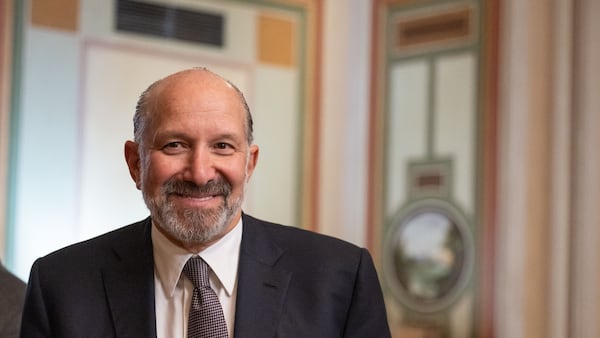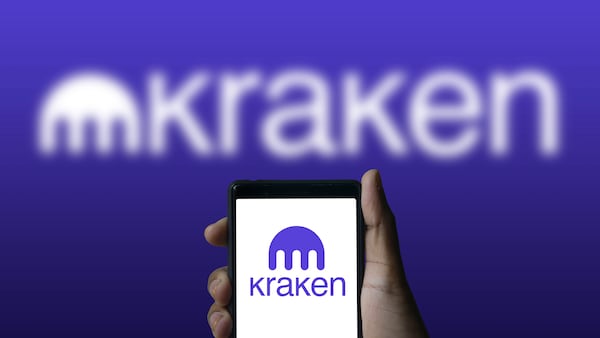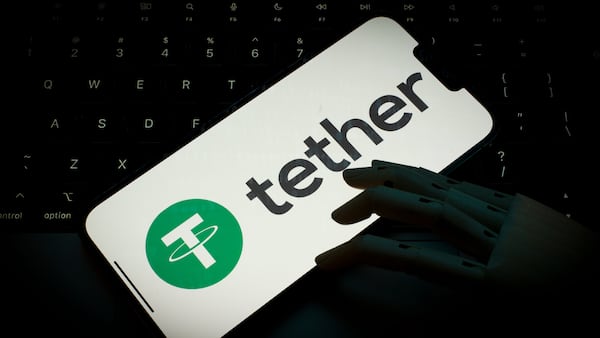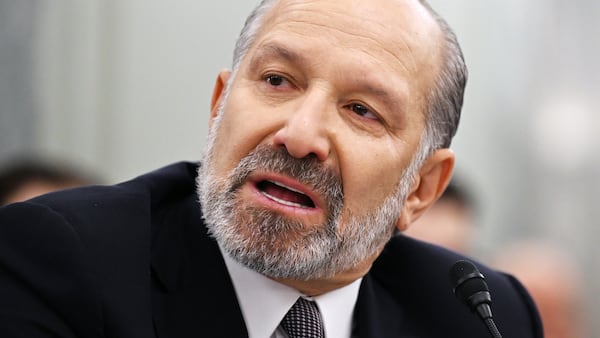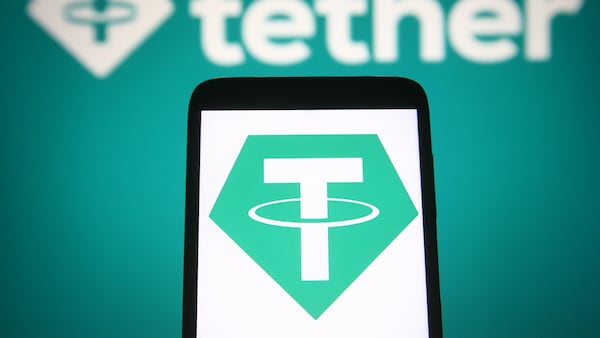- Stablecoin giant's penchant for offshore operations is about to get tested.
- Landmark legislation will establish rules for dollar-pegged cryptocurrencies.
- Circle is well poised to take advantage of the emerging regime.
A new stablecoin bill in the US has thrown Tether, and its lack of an independent audit, back into the spotlight.
That’s because provisions in the draft bill would bring stablecoin companies worth more than $10 billion under strict federal supervision — including sharing what’s in their reserves with the Comptroller of the Currency every month.
It’s a level of scrutiny Tether and its USDT offering, which sports a market value of $141 billion, have never faced.
But if the bill becomes law, Tether will have to pass this test if it is to continue servicing US customers.
“For USDT, this is a big come to God moment,” Bryan Keane, the lead compliance officer for crypto onramp Transak, told DL News. “With the US requiring these regulatory oversights and audits, I can see big issues for Tether in the future.”
El Salvador base
The main issue is that Tether, which was founded in 2014 in Hong Kong, does not operate out of the US. In January, the company said it was establishing a headquarters in El Salvador, where the Central American nation’s Bitcoin-loving president, Nayib Bukele, has welcomed the crypto giant with open arms.
“How this will impact Tether’s business, whether it will decide to remain offshore or embrace onshore regulation, is a huge question mark,” Patrick Gerhart, the president of the Nebraska-based crypto bank Telcoin, told DL News.
Tether declined to comment.
As the Trump administration relaxes regulations on the $3.3 trillion cryptocurrency industry, Tether faces an unprecedented opportunity. The advent of regulatory clarity may bolster the entire crypto market as institutional investors set aside their wariness and invest.
“If they overcome these challenges, they’re going to silence a lot of critics,” Keane said. “They’ll solidify their place in the market for a really long time.”
Legal framework
Introduced by Republican Senator Bill Hagerty on Tuesday, the Guiding and Establishing National Innovation for US Stablecoins Act, or Genius Act, is one of the first pieces of crypto legislation presented since Trump started his second term.
The act is the latest attempt at establishing a legal framework for the $230 billion stablecoin market.
The bill calls for stablecoin issuers to maintain certain levels of reserves to back up their dollar-pegged cryptocurrencies, and it will probably prohibit firms from using those reserves for other purposes.
‘We expect to see hundreds of dollar stablecoin products emerging in the US.’
— Luca Prosperi, M^0
It also demands that the CEO and CFO of issuers worth more than $10 billion submit monthly certifications that its reserve reports are accurate.
Bills typically undergo amendments during their passage to the president’s desk for signing into law. In its current form, experts say it will make it easier for any financial institution to begin launching stablecoins.
“We expect to see hundreds of dollar stablecoin products emerging in the US very soon after such legislation is put in place,” Luca Prosperi, CEO and co-founder of decentralised stablecoin protocol M^0, told DL News.
The upshot: Tether may get a lot more competition, especially from Wall Street institutions.
But also from its closest rival — Circle.
Circle is circling
Its stablecoin USDC is worth $56 billion, which is two-and-a-half times less than USDT. But the company, which counts the prestigious investment bank Goldman Sachs among its backers, has something Tether doesn’t.
Since 2022, Deloitte, a Big Four accounting firm, has been auditing its reserves, imbuing it with the level of credibility Tether CEO Paolo Ardoino wants.
“It will be fairly easy for Circle to come into compliance,” OpenTrade’s Sutter told DL News. “Much of what this bill requires they are already doing today.”
On Wednesday, Republican Senator Tim Scott, the Senate Banking Committee Chairman,, called on Congress to pass legislation on stablecoins in the first 100 days of the administration.
When similar rules were laid out in the European Union over the last three years, Tether elected not to comply.
As a result, several European crypto exchanges have delisted USDT.
Could the same happen in the US?
“If you issue stablecoins that meet the definition in this bill, you need to comply,” David Sutter, CEO of crypto yield platform OpenTrade, told DL News. “If you don’t and you are inside US regulators’ jurisdiction, which they could take a very broad view of, you will be in breach of the law.”
“Said more starkly, you very well could see Coinbase delisting USDT if Tether does not register.”
A Coinbase spokesperson told DL News that the crypto exchange would comply with the law.
‘I expect Tether to start the process to get US authorisation.’
— Noelle Acheson
Launched in 2014, Tether has become the most widely traded cryptocurrency on the market, according to CoinGecko.
As it’s grown, it has been dogged by questions about what’s backing each USDT token in circulation and its ties to illicit finance, including terrorism financing and the lethal fentanyl drug trade in the US.
In 2021, it settled an investigation with the New York State Department of Financial Services over misleading claims about its reserves. Since then, it’s begun issuing quarterly attestations — rather than a much more thorough audit. Tether only began issuing attestations of its reserves in 2017.
$13 billion in profit
Its latest attestation from December indicates the firm held more than $143 billion, most of which was in US Treasuries. Tether recorded $13 billion in profits from these holdings and fees.
While it’s still never executed a proper audit, one of the company’s biggest backers, Howard Lutnick, a Wall Street billionaire and Trump’s pick for Secretary of Commerce, has been a vocal supporter and partner.
Cantor Fitzgerald, the company Lutnick leads, is a financial services giant that manages billions of dollars in Tether’s stash of US Treasuries in its reserves.
The new stablecoin bill would make Tether transparent.
Knowingly submitting inaccurate information about stablecoins reserves would result in criminal penalties, the bill says.
Some analysts say the moment has come for Tether to shift into a new phase of its evolution.
“Depending on how the stablecoin bills evolve, I expect Tether to start the process to get US authorisation once the rules become clear,” Noelle Acheson, an independent researcher and author of the Crypto is Macro Now newsletter, told DL News.
“I imagine the US regulators would rather have Tether where they can keep an eye on it and maybe influence its operations than be very successful on the outside.”
Liam Kelly is a Berlin-based reporter for DL News. Got a tip? Email him at liam@dlnews.com.

